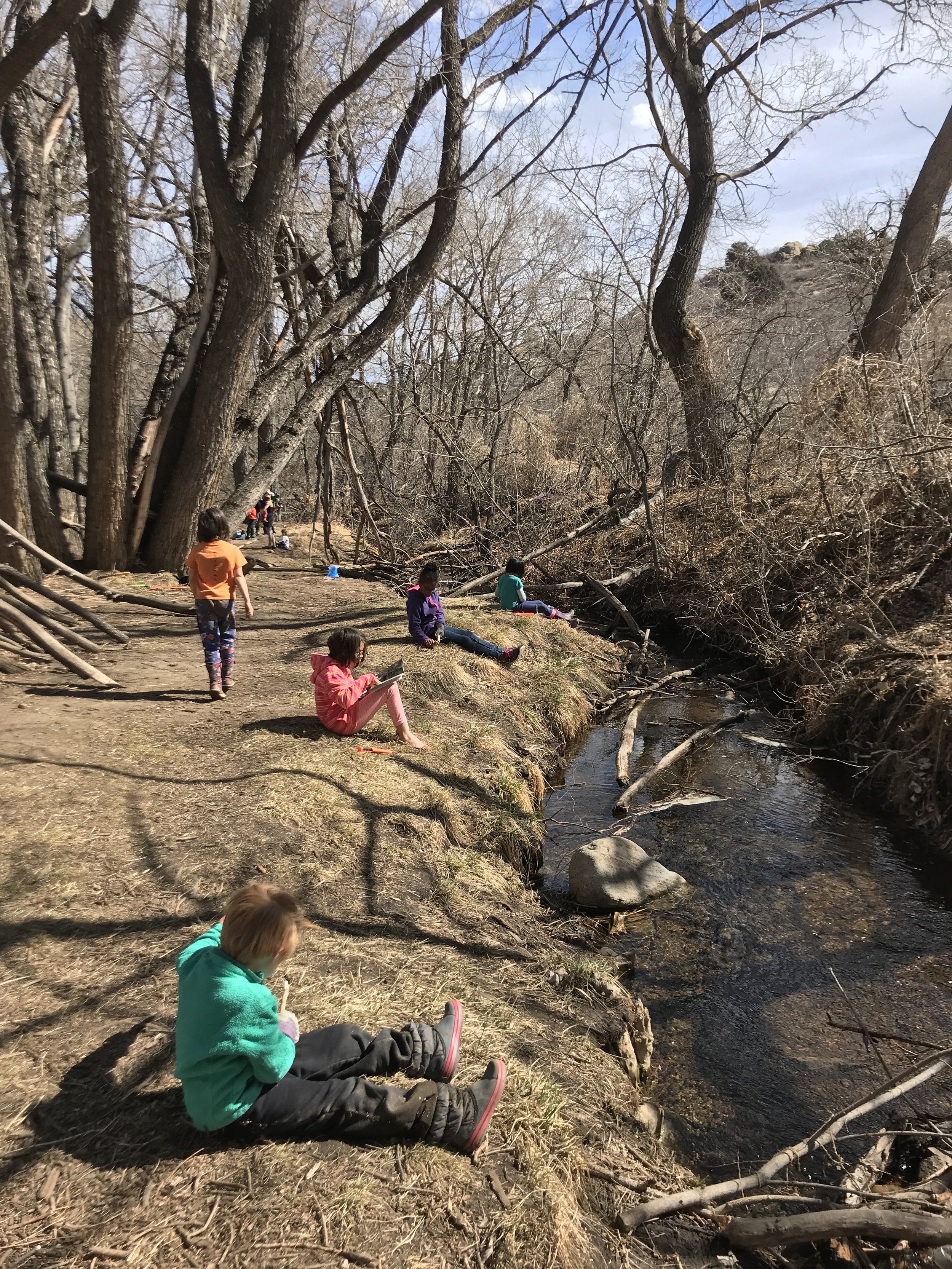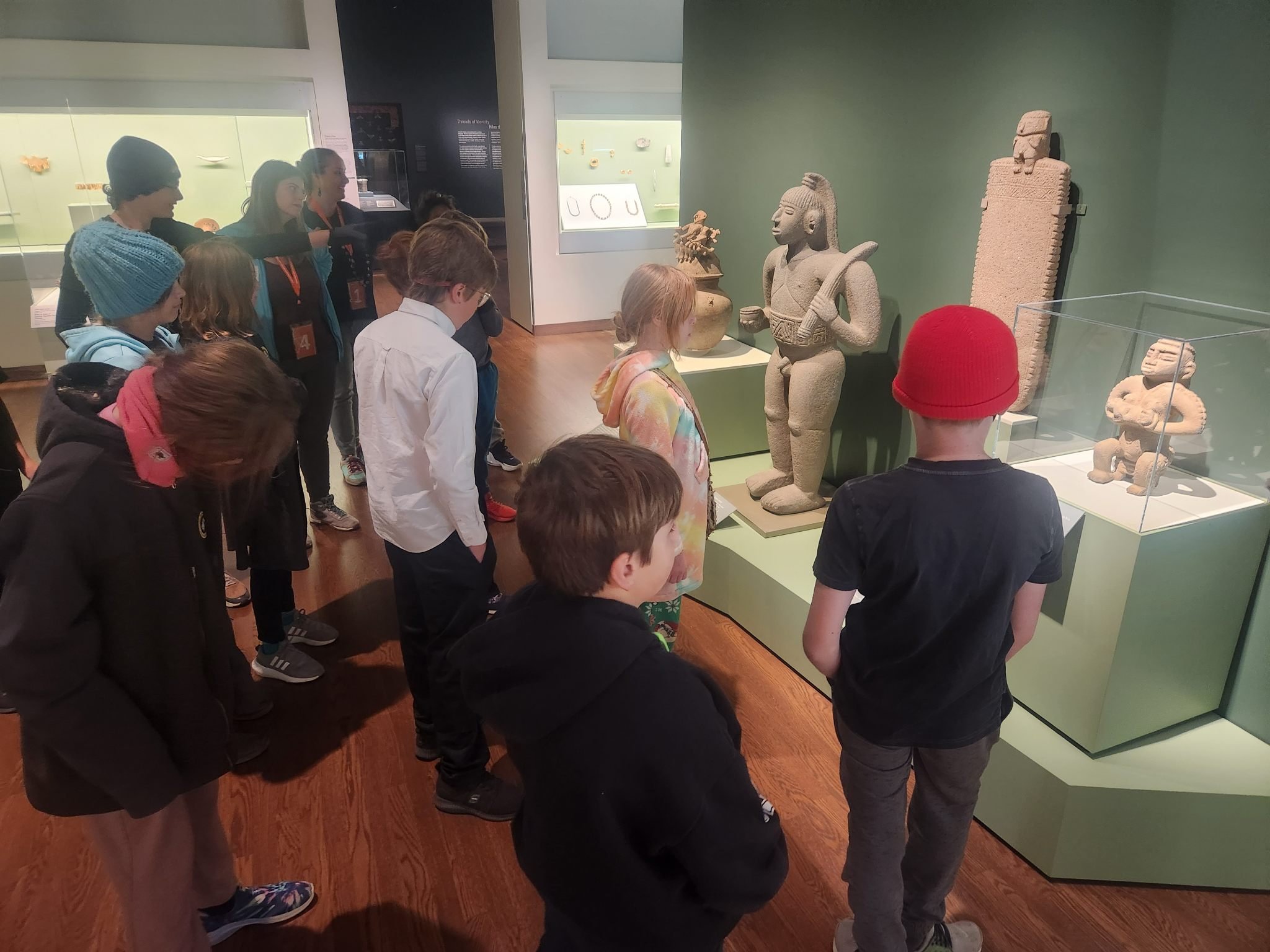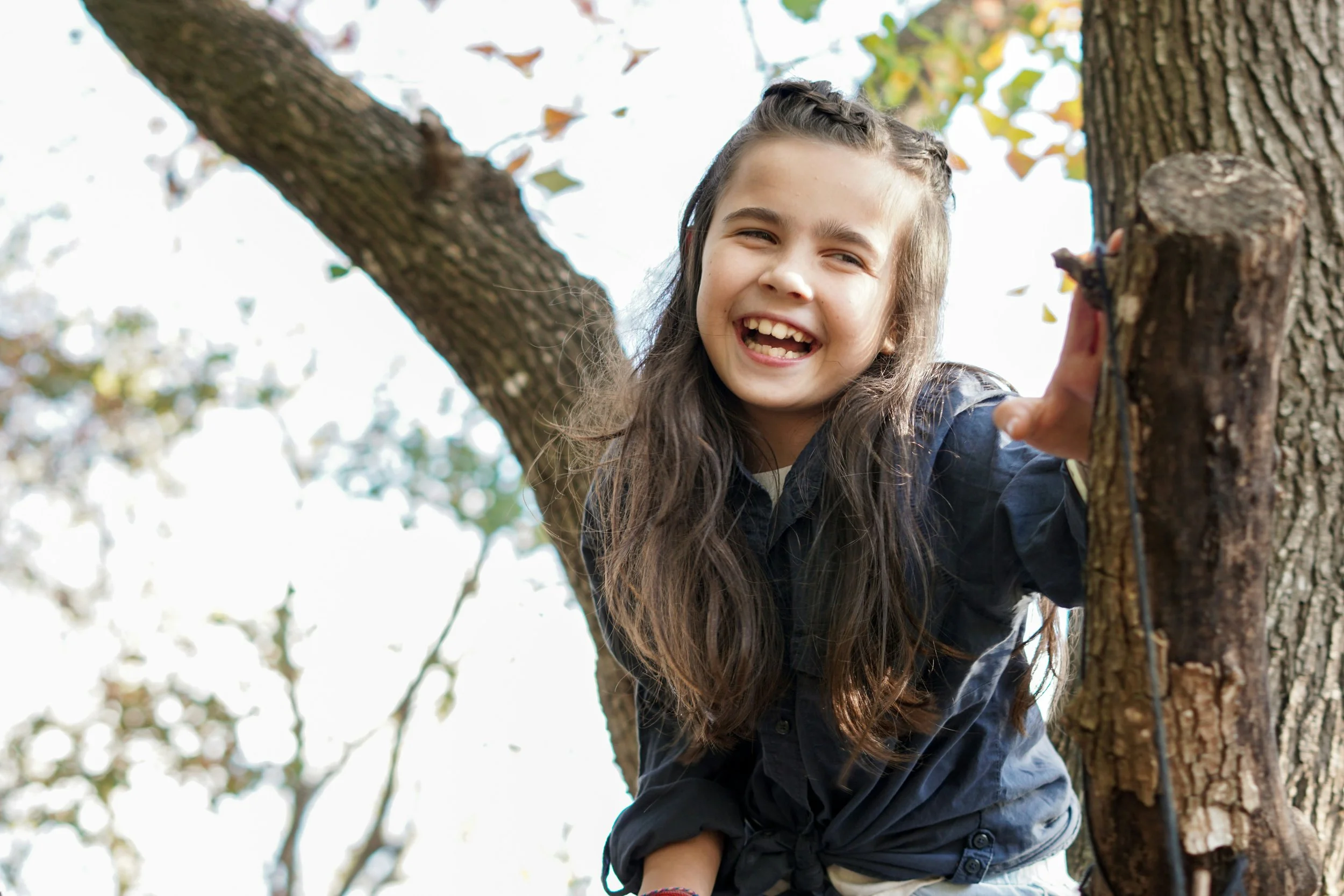What will my child be learning?
FOREST SCHOOLS
Our Forest School program promotes environmental stewardship and a deep connection with nature, reflecting our commitment to experiential, learner-led education inspired by the UK Forest Schools model.
Grades K-5: Learners engage in a progressive curriculum that begins with nature exploration, sensory experiences, and unstructured play. As students grow, they build on these foundations with lessons in ecological principles and conservation, while developing practical outdoor skills. These include fire lighting, cooking over an open fire, and a carefully sequenced introduction to tool use—culminating in the responsible handling of a whittling knife.
Forest School fosters curiosity, teamwork, and emotional intelligence while cultivating a lifelong appreciation for the natural world.
STEM
Builds foundational and advanced skills in science, technology, engineering, and math, critical for 21st-century careers.
Grades K-5: Hands-on science experiments and introductory math concepts.
Grades 6-8: Projects that integrate technology and engineering principles.
Grades 9-12: Advanced coursework in calculus, physics, and computer science.
CREATIVE WRITING & MEDIA STUDIES
Enhances communication skills and fosters a love for reading and writing, crucial for effective self-expression. Now includes media studies to build 21st-century literacy and digital communication skills.
Grades 3-5: Focuses on foundational literacy skills, creative storytelling, and an introduction to media studies through age-appropriate digital tools and visual storytelling.
Grades 6-8: Expands to analytical reading, diverse writing styles, and media literacy—teaching students to critically engage with digital content, explore multimedia expression, and develop responsible online communication.
Grades 9-12: Advanced literature studies and in-depth writing workshops are complemented by media studies that include film analysis, digital journalism, and content creation, preparing students for thoughtful engagement in a media-rich world.
LIFE SKILLS
Our Life Skills program equips students with practical tools for independence and personal growth, supporting our commitment to holistic development.
Grades K-5: Students build foundational skills in organization, time management, executive functioning, and self-care. As they grow, the curriculum evolves to introduce age-appropriate concepts such as basic financial literacy and early career awareness.
Grades 6-12: Building on earlier foundations, students deepen their understanding of financial literacy and career planning, while also engaging in meaningful discussions about navigating puberty, developing self-identity, building healthy relationships, and preparing for real-world responsibilities.
GAME-BASED LEARNING
Leverages both online and tabletop games, such as Minecraft and Dungeons & Dragons, to cultivate strategic thinking, teamwork, creativity, and problem-solving skills. This approach aligns with our innovative educational strategies, recognizing the value of game-based learning in enhancing engagement, motivation, and social skills.
Grades K-5: Introduction to basic game mechanics through age-appropriate online and tabletop games, focusing on storytelling, basic math skills, and cooperative play.
Grades 6-8: More complex game-based projects that incorporate elements of coding in Minecraft and character development in tabletop RPGs like Dungeons & Dragons, fostering advanced problem-solving and creative thinking.
Grades 9-12: Advanced game design and strategy, encouraging students to create their own game narratives and code custom modifications for online games. Tabletop gaming sessions emphasize leadership, narrative complexity, and ethical decision-making.
Industrial Design & Makerspace Workshop
Our Industrial Design & Makerspace Workshop invites students to become inventors, problem-solvers, and creative thinkers. This hands-on class blends the principles of industrial design with the freedom of a makerspace, empowering learners to bring their ideas to life through design, prototyping, and fabrication.
Grades 6-12: Students explore the full design process—from brainstorming and sketching to modeling and building—using a variety of materials and tools such as wood, metal, recycled components, and digital fabrication technologies. Along the way, they develop essential skills in design thinking, spatial reasoning, collaboration, and project management.
Whether crafting functional products, artistic structures, or inventive solutions to real-world problems, students gain confidence in their ability to design with purpose and precision. Our workshop fosters innovation, resilience, and a deep appreciation for how things are made.
Curriculum and Culture
Our educational program is designed around the principles of personalized and experiential learning.
At the core of our curriculum are research-based strategies that emphasize the importance of meeting students where they are, recognizing and valuing their unique strengths and challenges.
Our program incorporates interdisciplinary approaches that blend life skills with provide practical, real-world applications, ensuring that learning is both relevant and engaging.
Central to our educational philosophy is the integration of social-emotional learning (SEL), critical thinking, and problem-solving skills.
Facilitated through project-based learning, our community partnerships enrich our curriculum with specialized interventions and opportunities, offering an approach to education that addresses the cognitive, emotional, and social needs of our students.
Through our collaborative community of learners, educators, families, and partnerships, we are able to work together to provide a transformative educational experience that prepares students both in school and in life for the challenges and opportunities of the future.
We believe every student possesses unique strengths and infinite potential for growth.
Our approach is deeply rooted in the belief that education should:
be personalized, engaging, and expansive
transcend traditional boundaries
ignite curiosity
encourage exploration, creativity, and the pursuit of passions
enhance social-emotional learning
foster confidence and resilience
empower students to leverage their innate talents
Beyond Exceptional creates a culture that is inclusive, supportive, adaptive, and both recognizes and celebrates the diversity of learners' experiences and needs.
We believe students should feel valued for their individual contributions, motivated to deeply explore their interests, and have a strong sense of belonging in their learning environment.
Each program is tailored to meet the diverse needs of our students, promoting curiosity, creative expression, and practical life skills.
Our curriculum is designed to foster a supportive, engaging, and innovative learning environment that aligns with our mission to empower students through personalized, hands-on learning experiences.
-
Project-Based Learning
-
Critical Thinking
-
Nature Immersion Experiences
-
Social-Emotional Learning
-
Problem Solving
-
Real-World Learning
Our classroom culture is founded on the principles of respect, inclusivity, and collaboration. Teachers encourage students to view challenges as opportunities for growth and learning. This positive and supportive atmosphere enables students to express themselves freely, share their unique perspectives, and appreciate the diverse abilities and contributions of their peers.
Small class sizes (12 students max) allow for teachers to tailor instruction to the individual learning styles, interests, and needs of each student, while also facilitating a deeper understanding of each student's academic progress, emotional well-being, and social development.











